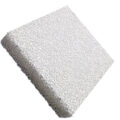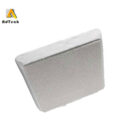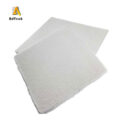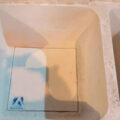Advanced ceramic filter is used in aluminum oxide granular material should seem an obvious choice to any person skilled in the art of refractory materials used to contain molten aluminum and its alloys.
Alumina is relatively chemically inert in molten aluminum and its common alloys, including alloys containing magnesium.
Advanced ceramic filter is also widely used as a granular material in refractories used in furnaces, both for melting and for containing molten aluminum alloys.
In addition, before the advent of disposable replaceable ceramic foam filters for molten aluminum, filters with lamellar alumina filler were used. Filters with a filler are large heated vessels containing unbound grains of lamellar alumina, used for repeated castings for several days or even weeks. The long exposure time of molten metal with unbound aggregated materials, such as in ceramic foam filter with fillers and refractories, requires the use of a chemically inert granular material such as aluminum oxide.
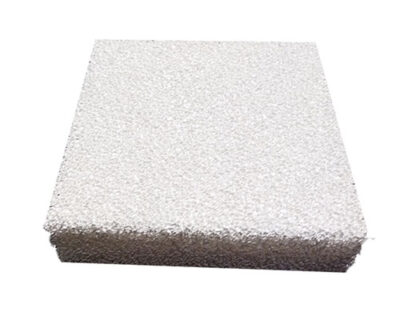
However, alumina has a relatively high coefficient of linear thermal expansion (8.0 × 10-6 / ° C), and monolithic forms of alumina, such as ceramic foam filters, have low heat resistance due to high thermal stresses created by a combination of thermal gradients in the result of uneven heating and a high coefficient of thermal expansion.
In the process of preheating and initial contact with molten metal, the Reticulated ceramic foam filters material may crack or crack, as a result of which the filter material enters the ingot or billet, where it becomes an inclusion.
In addition, when the alumina-based foam ceramic filter is held in the filter bowl during preheating and use, high transverse compressive stresses can be generated as a result of the high coefficient of thermal expansion of the filter, resulting in destruction of the filter during compression.


